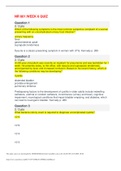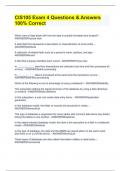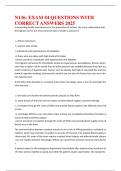History of philosophy
Philosophia: philo = loving, Sophia = wisdom
Drivers of philosophy
- Wonder about the world, nature, animals, humans
- Doubt about all knowledge
- Meaning of life
- Awareness of mortality
- Will to know
- Consequences of reduced instinct
Sophism is a pre-socratic school of thought in philosophy in ancient Greece. It comes from the Greek word Sophos,
which means “wise” or “skilled”. Originally, sophism was used to refer to anyone with expertise in a specific domain
of knowledge or craft. A blacksmith, for example, can be referred to as a Sophos in his occupation. Overtime,
sophism came to denote a class of itinerant intellectuals called the sophists who speculated about the nature of
language and culture and who employed rhetoric to achieve their purpose, which is to persuade others.
As a philosophical doctrine, sophism holds that a person’s subjective reality is the only reality that exists and can be
known. Hence, the sophists believe that “truth” is what people thought it to be.
Philosophical questions:
- Questioning the what of things/phenomena
o What is truth/ time/space/matter/life/humanity
- Questioning the presuppositions of our thinking and reasoning
o Our senses are a reliable source of knowledge
o The world (cosmos) is intelligible (can be known)
o The human is a free creature (possesses free will)
Fundamental questions according to I. Kant:
- What can I know (science)
- What must I do (ethics)
- What may I hope (religion)
- What is man (anthrophology)
Philosophical disciplines
- Logic
o From Greek word logos: laws of thinking
- Ontology and epistemology
o Ontology is about the things in the world (reality), ontos means beings
o Epistemology is about knowledge (how can we know)
- Ethics
o Deals with the question of just or unjust (morality)
- Aesthetics
o What is beauty
The terms mythos and logos are used to describe the transition in ancient Greek thought from the stories of gods,
goddesses, and heroes (mythos) to the gradual development of rational philosophy and logic (logos). The former is
represented by the earliest Greek thinkers, such as Hesiod and homer; the latter is represented by later thinkers
called the pre-socratic philosophers and then Socrates, plato and Aristotle.
In the earliest, mythos stage of development, greeks saw events of the world as being caused by a multitude of
clashing personalities – the gods. Greek thinkers became critical of the old myths and proposed alternative
explanations of natural phenomena based on observation and logical deduction. Under logos the highly personalized
worldview of the Greeks became transformed into one in which natural phenomena were explained not by invisible
superhuman persons, but by impersonal natural causes.
First philosophers (presocratics)
, - Socrates is a kind of central figure and that’s why there is a presocratics (before Socrates) and what after
Socrates
- Taught more about nature
- Asked for the unchanging (eternal) foundations and regulatities behind the permanent change and
changeability of the phenomena (phainomena)
- Looked for first principles (archai) behind reality
- The fundamental question was invariable: what is the original element or principle? What constituted the
world at its origin? And how have the various thing come to be out of this origin?
Thales of milete Lived in east turkey. Everything follows from water
Anaximander The apeiron (the infinite). The apeiron is neither water nor any other one of the things called
elements, but the infinite is something of a different nature, from which came all the heavens and the worlds in
them
Pythagoras The world ultimately is made of numbers
Parmenides What is, is. Only being is, not being is not and cannot be thought either. Change is impossible because
something cannot originate from nothing. The apparently changing world of phenomena (our senses) is therefore an
illusion
Heraclitus Everything flows. You cannot step into the same river twice. War is the father of all things, nature loves to
hide. There exists a logos that pervades and lies at the foundation of physis
Empedocles Four elements: water, fire, earth and air
Democritus/leucipuus Atoms means something that cannot be split (the ultimate end of reality
Plato and Aristotle Plato: famous for his theory of ideas -> always looking at the heavens. Aristotle: always looking
to the earth
Plato
- Two world doctrine (doctrine of ideas)
o Difference between reality and thinking
o Things as we see them with our senses, and the way we understand them
- Three souls doctrine
o Rational (ruling class)
o Spirited (soldiers)
o Appetitive (working class, metabolism)
Aristotle
- Later than plato
- Four causes doctrine (ex. Table)
o Material cause: wood
o Final cause: dining
o Formal cause: design
o Efficient cause: carpentry
- Four elements doctrine: fire, earth, water, air
- Three souls doctrine:
Soul (psyche) principle of life = organizing and vitalizing principle in each living organism
o Vegetative soul: metabolism (plants)
o Sensitive and animate soul (animals)
o Intellectuals/ rational soul (humans)
- Entelechy that which realizes or makes actual what is otherwise merely potential. The mere stuff or matter is
not yet the real thing; it needs a certain form or essence or function to complete it. Matter and form,
however, are never separated; they can only be distinguished.
- Holomorphism is a philosophical theory developed by Aristotle, which conceives being as a compound of
matter and form. Aristotle defines X’s matter as that out of which X is made. Letters are the matter of
syllables. Thus matter is a relative term.
Physis and techne
- Physis: nature (that which has principle of movement and rest within itself)
- Techen: technics (that which has its principle of movement in something else: the human)
Cosmos means the universe and order and beauty
Philosophia: philo = loving, Sophia = wisdom
Drivers of philosophy
- Wonder about the world, nature, animals, humans
- Doubt about all knowledge
- Meaning of life
- Awareness of mortality
- Will to know
- Consequences of reduced instinct
Sophism is a pre-socratic school of thought in philosophy in ancient Greece. It comes from the Greek word Sophos,
which means “wise” or “skilled”. Originally, sophism was used to refer to anyone with expertise in a specific domain
of knowledge or craft. A blacksmith, for example, can be referred to as a Sophos in his occupation. Overtime,
sophism came to denote a class of itinerant intellectuals called the sophists who speculated about the nature of
language and culture and who employed rhetoric to achieve their purpose, which is to persuade others.
As a philosophical doctrine, sophism holds that a person’s subjective reality is the only reality that exists and can be
known. Hence, the sophists believe that “truth” is what people thought it to be.
Philosophical questions:
- Questioning the what of things/phenomena
o What is truth/ time/space/matter/life/humanity
- Questioning the presuppositions of our thinking and reasoning
o Our senses are a reliable source of knowledge
o The world (cosmos) is intelligible (can be known)
o The human is a free creature (possesses free will)
Fundamental questions according to I. Kant:
- What can I know (science)
- What must I do (ethics)
- What may I hope (religion)
- What is man (anthrophology)
Philosophical disciplines
- Logic
o From Greek word logos: laws of thinking
- Ontology and epistemology
o Ontology is about the things in the world (reality), ontos means beings
o Epistemology is about knowledge (how can we know)
- Ethics
o Deals with the question of just or unjust (morality)
- Aesthetics
o What is beauty
The terms mythos and logos are used to describe the transition in ancient Greek thought from the stories of gods,
goddesses, and heroes (mythos) to the gradual development of rational philosophy and logic (logos). The former is
represented by the earliest Greek thinkers, such as Hesiod and homer; the latter is represented by later thinkers
called the pre-socratic philosophers and then Socrates, plato and Aristotle.
In the earliest, mythos stage of development, greeks saw events of the world as being caused by a multitude of
clashing personalities – the gods. Greek thinkers became critical of the old myths and proposed alternative
explanations of natural phenomena based on observation and logical deduction. Under logos the highly personalized
worldview of the Greeks became transformed into one in which natural phenomena were explained not by invisible
superhuman persons, but by impersonal natural causes.
First philosophers (presocratics)
, - Socrates is a kind of central figure and that’s why there is a presocratics (before Socrates) and what after
Socrates
- Taught more about nature
- Asked for the unchanging (eternal) foundations and regulatities behind the permanent change and
changeability of the phenomena (phainomena)
- Looked for first principles (archai) behind reality
- The fundamental question was invariable: what is the original element or principle? What constituted the
world at its origin? And how have the various thing come to be out of this origin?
Thales of milete Lived in east turkey. Everything follows from water
Anaximander The apeiron (the infinite). The apeiron is neither water nor any other one of the things called
elements, but the infinite is something of a different nature, from which came all the heavens and the worlds in
them
Pythagoras The world ultimately is made of numbers
Parmenides What is, is. Only being is, not being is not and cannot be thought either. Change is impossible because
something cannot originate from nothing. The apparently changing world of phenomena (our senses) is therefore an
illusion
Heraclitus Everything flows. You cannot step into the same river twice. War is the father of all things, nature loves to
hide. There exists a logos that pervades and lies at the foundation of physis
Empedocles Four elements: water, fire, earth and air
Democritus/leucipuus Atoms means something that cannot be split (the ultimate end of reality
Plato and Aristotle Plato: famous for his theory of ideas -> always looking at the heavens. Aristotle: always looking
to the earth
Plato
- Two world doctrine (doctrine of ideas)
o Difference between reality and thinking
o Things as we see them with our senses, and the way we understand them
- Three souls doctrine
o Rational (ruling class)
o Spirited (soldiers)
o Appetitive (working class, metabolism)
Aristotle
- Later than plato
- Four causes doctrine (ex. Table)
o Material cause: wood
o Final cause: dining
o Formal cause: design
o Efficient cause: carpentry
- Four elements doctrine: fire, earth, water, air
- Three souls doctrine:
Soul (psyche) principle of life = organizing and vitalizing principle in each living organism
o Vegetative soul: metabolism (plants)
o Sensitive and animate soul (animals)
o Intellectuals/ rational soul (humans)
- Entelechy that which realizes or makes actual what is otherwise merely potential. The mere stuff or matter is
not yet the real thing; it needs a certain form or essence or function to complete it. Matter and form,
however, are never separated; they can only be distinguished.
- Holomorphism is a philosophical theory developed by Aristotle, which conceives being as a compound of
matter and form. Aristotle defines X’s matter as that out of which X is made. Letters are the matter of
syllables. Thus matter is a relative term.
Physis and techne
- Physis: nature (that which has principle of movement and rest within itself)
- Techen: technics (that which has its principle of movement in something else: the human)
Cosmos means the universe and order and beauty










